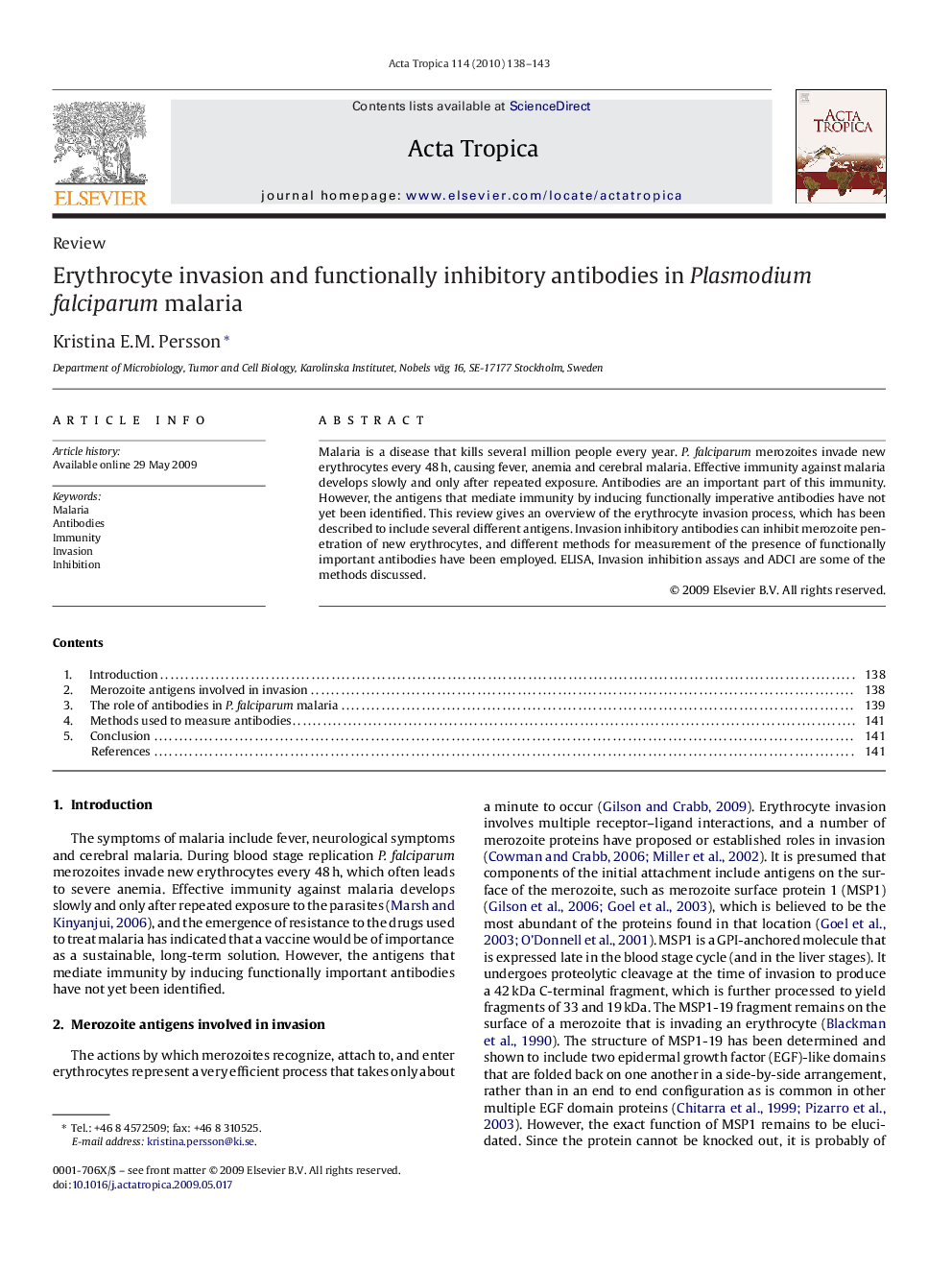| Article ID | Journal | Published Year | Pages | File Type |
|---|---|---|---|---|
| 3394145 | Acta Tropica | 2010 | 6 Pages |
Malaria is a disease that kills several million people every year. P. falciparum merozoites invade new erythrocytes every 48 h, causing fever, anemia and cerebral malaria. Effective immunity against malaria develops slowly and only after repeated exposure. Antibodies are an important part of this immunity. However, the antigens that mediate immunity by inducing functionally imperative antibodies have not yet been identified. This review gives an overview of the erythrocyte invasion process, which has been described to include several different antigens. Invasion inhibitory antibodies can inhibit merozoite penetration of new erythrocytes, and different methods for measurement of the presence of functionally important antibodies have been employed. ELISA, Invasion inhibition assays and ADCI are some of the methods discussed.
